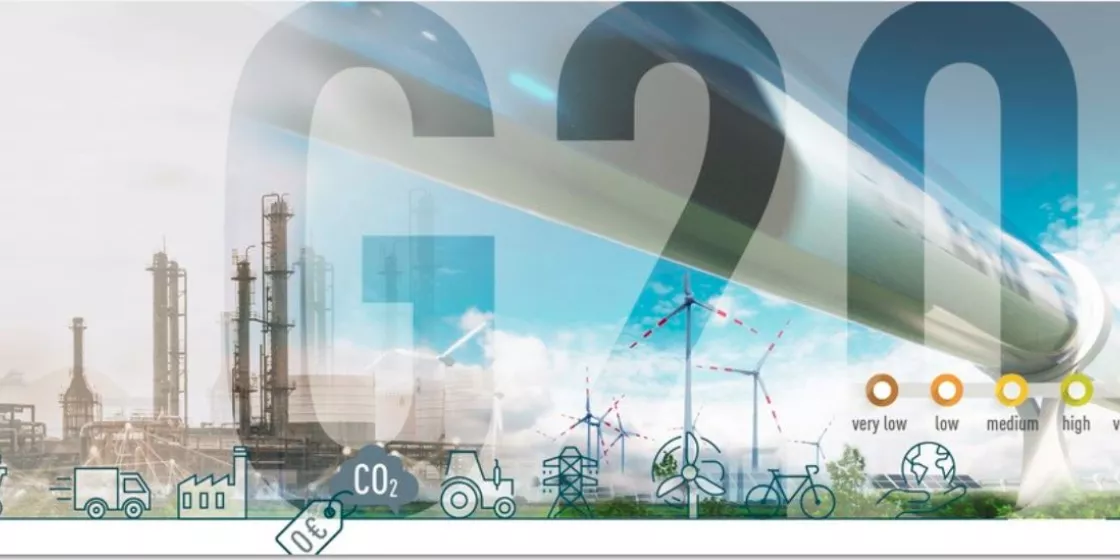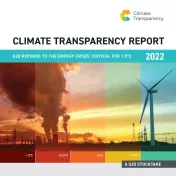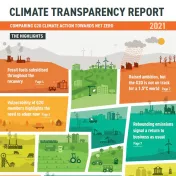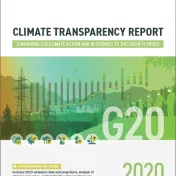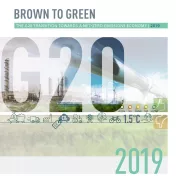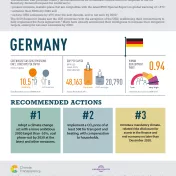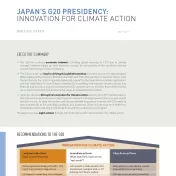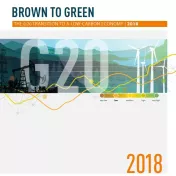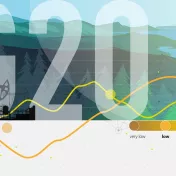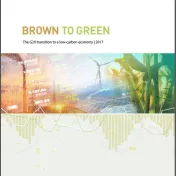The "Climate Transparency Report", previously the "Brown to Green Report", is the world's most extensive annual study of the G20's climate measures. The analysis includes 100 indicators for climate adaptation, risks, protection and finance. It intends to highlight both good strategies and weaknesses and is supplemented by detailed country reports. "Climate Transparency" an international initiative of 14 research organizations and Non-governmental organizations from the majority of the G20 countries, publishes the report annually. Until 2019, Germanwatch was one of the main authors of the report and is co-responsible for the German country profil since 2020.
Climate Transparency Report 2020 >>
